Ukrainian Defense Intelligence agency leader Kyrylo Budanov claimed in remarks on Sunday that he had reason to believe Russian opposition leader Alexei Navalny, whose death the Russian government announced on February 16, died of “natural” causes, not state-sponsored homicide.
“I may disappoint you,” Budanov told reporters, “but as far as we know, he indeed died as a result of a blood clot.”
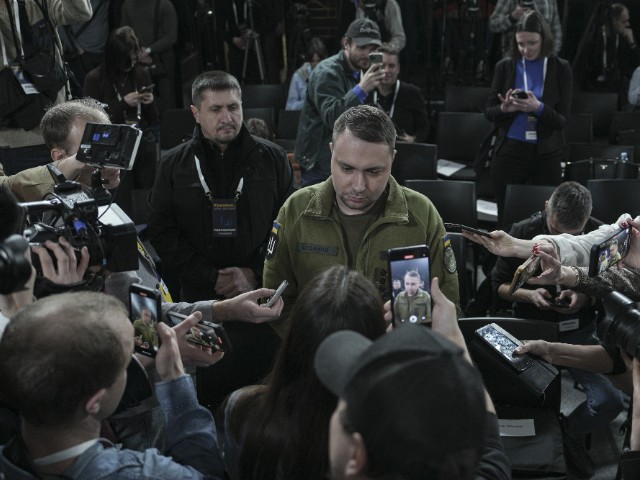
Kyrylo Budanov, Ukraine’s commander in chief, speaks to members of the media during the ‘Ukraine. Year 2024’ forum in Kyiv, Ukraine, on Sunday, Feb. 25, 2024 (Andrew Kravchenko/Bloomberg).
Navalny was Russia’s most prominent political opposition leader, a one-time presidential candidate, and a firebrand critic of strongman Vladimir Putin. Evidence suggests he survived an assassination attempt by the Russian state in 2020; laboratory testing in Europe found that he had been exposed to the nerve agent Novichok, almost exclusively used in Russian political assassinations. Navalny later claimed that he had fooled a Russian intelligence agent into telling him that the Putin regime had given orders to poison him with Novichok, placing the chemical in his underwear.
He was immediately arrested upon his return to Russia after the Novichok episode and remained in prison under dubious corruption charges until his death in February.
Shortly before his death, Navalny abruptly disappeared within the prison system for two weeks, resurfacing in December after two weeks at the “Polar Wolf” penal colony in the Arctic Circle, where he died. One of Navalny’s last public statements was a message joking to his supporters that he had become the “new Father Frost,” a Russian folk figure akin to Santa Claus, at the Arctic prison.
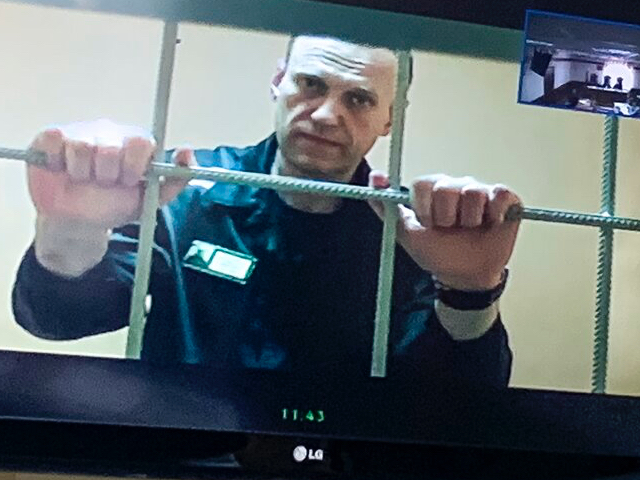
Russian opposition leader Alexei Navalny appears from prison on a video link provided by the Russian Federal Penitentiary Service, at a courtroom in Vladimir, Russia, Tuesday, June 7, 2022 (AP Photo/Vladimir Kondrashov).
Navalny’s family said that Russian officials attributed his demise to “sudden death syndrome,” without further explanation. In a public statement, Russian officials claimed that Navalny “felt unwell after a walk” and “fainted and died quickly.” Navalny’s family also claimed that the government refused, without explanation, to hand over the body but finally ceded and gave Navalny’s mother custody of his body on Saturday after widespread global pressure campaigns.
Navalny’s death prompted several protests and public displays of mourning in the country, to which Putin’s regime responded with widespread arrests.
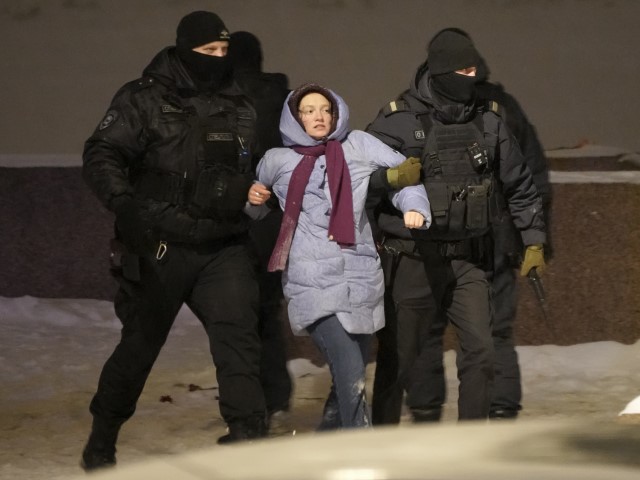
Police officers detain a woman who laid flowers for Alexei Navalny at the Memorial to Victims of Political Repression in St. Petersburg, Russia on Friday, Feb. 16, 2024 (AP Photo).
Budanov, the head of Ukraine’s Defense Ministry Main Directorate of Intelligence (HUR), said his information appeared to align with that of the Russian government. He told reporters at a forum on Sunday that Navalny’s death due to a blood clot was “more or less confirmed.”
“This wasn’t sourced from the internet, but, unfortunately, natural [causes],” he said, according to the Kyiv Post.
In other remarks at the forum, Budanov also appeared to dismiss the potential of an opposition figure like Navalny ending Putin’s regime and building democracy in Russia, claiming the only way to do so would be to help Ukraine with financing for its war on Russia.
“Without our help, it is unrealistic” that Russians will free themselves, he claimed.
Budanov’s comments contradict the initial reaction to Navalny’s death from his government, particularly President Volodymyr Zelensky.
“It’s just emerged that Alexei Navalny died in a Russian prison. He was likely killed by Putin,” Zelensky said in his initial remarks about Navalny, “like thousands of others who were tortured because of this one creature. Putin doesn’t care who dies, as long as he keeps his positions.”
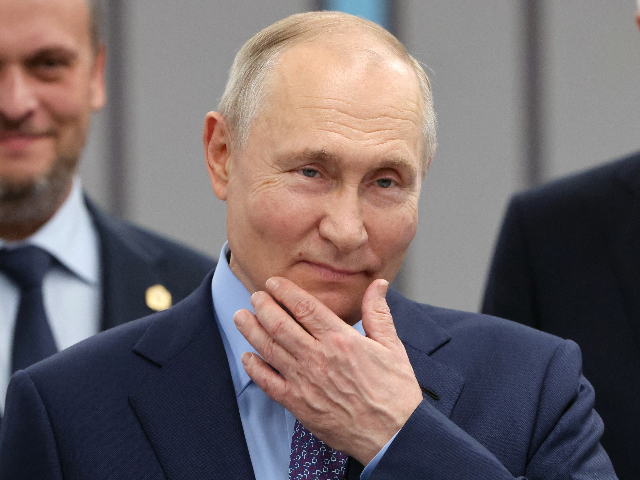
Russian President Vladimir Putin on September 21, 2023, in Veliky Novgorod, Russia (Contributor/Getty Images)
Zelensky issued subsequent remarks demanding the world “bring Putin to justice for the murder of” Navalny, the state-run Ukrinform news service reported.
“Putin has become one of the bloodiest dictators in European history, but unfortunately, his journey is not over yet,” Zelensky proclaimed. “We will work with everyone in the world who can bring him to justice. I urge every leader in the world not to remain silent and not to stand aside. The murderer must be punished.”
The Ukrainian government’s Center for Strategic Communication and Information Security also described Navalny’s death as a “murder” in a commentary published in Ukrinform on February 17.
“The death of Alexey Navalny in a Russian colony is a political murder,” the Center concluded. “The Kremlin will not allow an independent investigation into the circumstances of the opposition politician’s death, and there is no reason to trust any official version.”
“Navalny’s murder is a defiant challenge to the West, which was concerned about the fate of the political prisoner,” the agency continued. “On June 16, 2021, US President Joe Biden warned that if Navalny were to die in prison, the consequences would be devastating for Russia.”
Navalny dedicated the last year of his life to fighting Putin’s rule in Russia. He ardently opposed the Russian invasion of Ukraine that began in 2022, calling it a “stupid war” and urging Russians to engage in daily protests against it. Navalny ran into disagreements with the Ukrainian government, however, as he made public statements in which he asserted that Russia should control the Crimean peninsula and objected to calls for Russia to hand over the territory after Putin annexed it in 2014, arguing, “What, is Crimea a ham sandwich or something that you can take and give back? No, I don’t believe so.”
Navalny also supported Putin’s invasion of neighboring Georgia in 2008, prior to Putin’s military expansion campaigns into Ukraine.
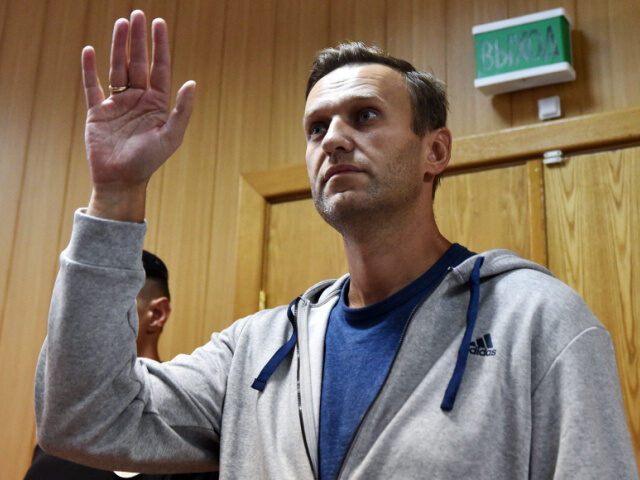
COMMENTS
Please let us know if you're having issues with commenting.